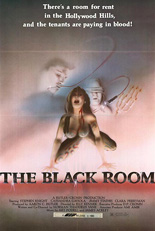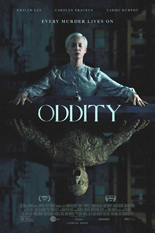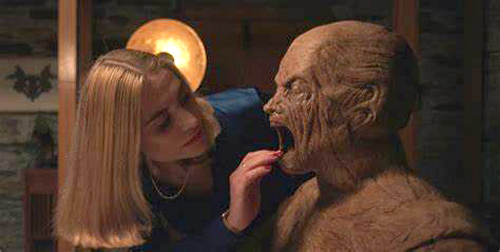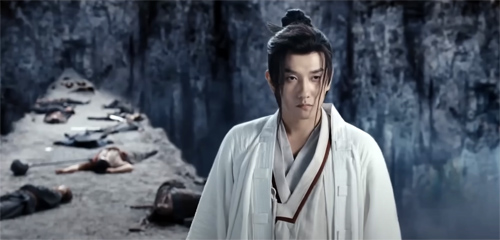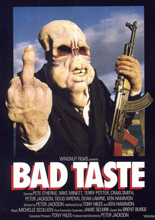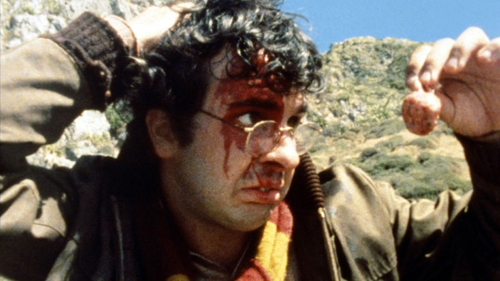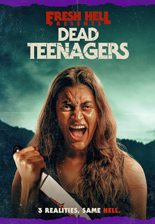
Why spice things up in the bedroom when you can do it in The Black Room?
“HILLTOP MANSION HAS UNIQUE & EXOTIC ROOM” is all the nightly cockblocked husband Larry (Jimmy Stathis, X-Ray) needs to read in the classifieds to color his horny self intrigued. Upon a tour of the Hollywood Hills home, he slaps down $200 a month to secure the place as a secret fuck-pad, even though the ad failed to state “SHITLOAD OF CANDELABRAS.”
Naturally, it — ahem — comes with a catch: raging gonorrhea. The owners/siblings Jason and Bridget (Necromancy’s Stephen Knight and The Amityville Curse’s Cassandra Gava) sneak peeks and snap blackmail-worthy photos via two-way mirror. Then, unbeknownst to Larry, they murder his conquests and bury the bodies in the yard — yes, even the lady Larry balls while they’re covered in glow paint.
Jason puts it best, young man: “This isn’t the YMCA.”
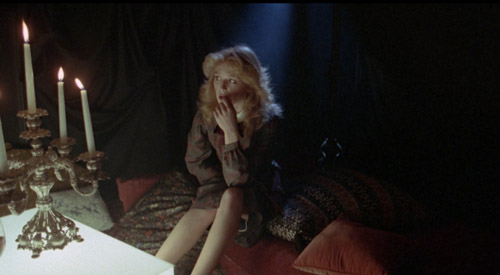
As writer and co-director, Norman Thaddeus Vane (1983’s Frightmare) can’t help but bring a little horror to this tale of property and perversion. But accidental or not, he more helps establish the template for a phenomenon of the following decade: the straight-to-cable/video erotic thriller. Like the best of those, The Black Room has its cake and lays it, too, with Larry not only living his repressed fantasies, but also blessed with a fabulous — and fabulously beautiful — wife at home in Robin (Clara Perryman, who somehow never scored a movie before or after this).
Perryman’s performance is of a higher caliber than Vane could’ve hoped for. Because she gets more than one dimension to play — and does all of them well — he really lucked out with that hire. When Robin discovers Larry’s infidelity, her devotion to her husband collapses … until she decides the best way to save the marriage is to give the room a ride herself. She picks up a young stud in Christopher McDonald (in the same year he greased up Grease 2) and his mighty white-boy ’fro.
McDonald’s not the only cast member to graduate a long career; soon-to-be scream queen Linnea Quigley (Sorority Babes at the Slimeball Bowl-O-Rama) appears as Robin and Larry’s babysitter in a late-film turn that makes her one of the least reliable babysitters in cinema history. Laurie Strode, she ain’t. At least her poor decision skills pave the way for an ominous ending not tied up in a pretty bow. —Rod Lott

